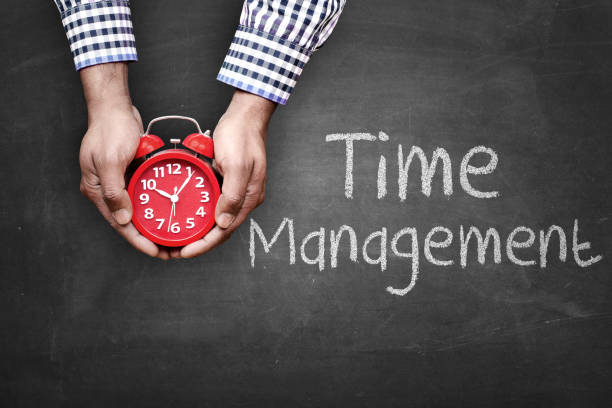Time management is an essential skill for achieving personal and professional success. By effectively managing your time, you can boost productivity, reduce stress, and create a healthier work-life balance. This article explores key time management strategies, including prioritization, goal setting, planning, and the use of productivity tools, to help you make the most of your time.

The Importance of Time Management
Effective time management enables individuals to:
- Increase Productivity: Accomplish more tasks in less time by focusing on priorities and minimizing distractions.
- Reduce Stress: Lower stress levels by maintaining control over tasks and deadlines.
- Achieve Goals: Progress towards personal and professional goals through organized and efficient actions.
- Enhance Work-Life Balance: Allocate time effectively between work and personal life, fostering overall well-being.
Key Time Management Strategies
- Prioritization
Prioritizing tasks is fundamental to effective time management. By identifying and focusing on high-priority tasks, you can ensure that your time and energy are spent on what truly matters.
- Eisenhower Matrix: Use the Eisenhower Matrix to categorize tasks into four quadrants: urgent and important, important but not urgent, urgent but not important, and neither urgent nor important. Focus on tasks in the first two categories.
- ABC Method: Assign each task an A, B, or C priority. A tasks are high-priority and must be done immediately, B tasks are important but less urgent, and C tasks are low-priority.
- Goal Setting
Setting clear, achievable goals provides direction and motivation. Break down larger goals into smaller, manageable tasks to track progress and maintain focus.
- SMART Goals: Ensure your goals are Specific, Measurable, Achievable, Relevant, and Time-bound. This framework helps in setting clear and realistic objectives.
- Short-Term and Long-Term Goals: Balance your focus between short-term tasks that need immediate attention and long-term projects that require sustained effort.
- Planning and Scheduling
Planning your day, week, and month in advance helps in managing time effectively and reducing last-minute stress.
- Daily Planning: Start your day by listing tasks and prioritizing them. Allocate specific time slots for each task.
- Weekly Planning: Review your week ahead, set goals, and allocate time for important tasks and projects.
- Monthly Planning: Outline major goals and deadlines for the month, and break them down into weekly and daily tasks.

- Time Blocking
Time blocking involves dedicating specific time slots for different tasks or activities. This technique helps in maintaining focus and preventing multitasking.
- Work Blocks: Allocate uninterrupted blocks of time for deep work and high-priority tasks.
- Breaks and Downtime: Schedule regular breaks to rest and recharge. Include time for meals, exercise, and relaxation.
- Buffer Time: Include buffer time between tasks to account for unexpected interruptions and transitions.
- Eliminating Distractions
Minimizing distractions is crucial for maintaining focus and productivity.
- Digital Distractions: Turn off non-essential notifications, use website blockers, and set specific times for checking emails and social media.
- Physical Distractions: Create a clutter-free workspace and use noise-canceling headphones if necessary.
- Set Boundaries: Communicate with family members or housemates about your work hours to minimize interruptions.
- Delegation
Delegating tasks allows you to focus on high-priority activities and leverage the strengths of others.
- Identify Delegable Tasks: Determine which tasks can be delegated based on their importance and urgency.
- Choose the Right Person: Assign tasks to individuals with the appropriate skills and expertise.
- Provide Clear Instructions: Ensure that tasks are clearly defined and provide any necessary resources and guidance.
- Using Productivity Tools
Productivity tools can streamline tasks, enhance organization, and improve time management.
- Task Management Apps: Use apps like Todoist, Trello, or Asana to create task lists, set deadlines, and track progress.
- Calendar Apps: Use digital calendars like Google Calendar or Microsoft Outlook to schedule tasks, appointments, and reminders.
- Time Tracking Apps: Track your time spent on different activities with apps like Toggl or Clockify to identify areas for improvement.
Maintaining Work-Life Balance
Achieving a healthy work-life balance is essential for long-term well-being and productivity.
- Set Boundaries:
- Work Hours: Establish clear work hours and avoid working beyond those times.
- Personal Time: Dedicate time for family, friends, hobbies, and self-care.
- Self-Care:
- Physical Health: Prioritize exercise, nutrition, and sufficient sleep.
- Mental Health: Practice mindfulness, meditation, and stress-relief activities.
- Unplug and Recharge:
- Digital Detox: Take regular breaks from digital devices to disconnect and relax.
- Vacation and Downtime: Schedule regular vacations and downtime to recharge and prevent burnout.

Continuous Improvement
Time management is an ongoing process that requires regular evaluation and adjustment.
- Review and Reflect:
- Daily Reflection: At the end of each day, review what you accomplished and identify areas for improvement.
- Weekly Review: Evaluate your progress towards weekly goals and adjust your plans accordingly.
- Learn and Adapt:
- New Techniques: Stay open to new time management techniques and tools that may enhance your productivity.
- Feedback: Seek feedback from colleagues, mentors, and peers to identify areas for improvement.
Conclusion
Effective time management is a crucial skill for achieving productivity, reducing stress, and maintaining a healthy work-life balance. By prioritizing tasks, setting clear goals, planning and scheduling effectively, and minimizing distractions, individuals can make the most of their time. Incorporating productivity tools and maintaining a focus on well-being further enhances time management efforts. Continuously reviewing and adapting your time management strategies ensures sustained success and a balanced, fulfilling life.

